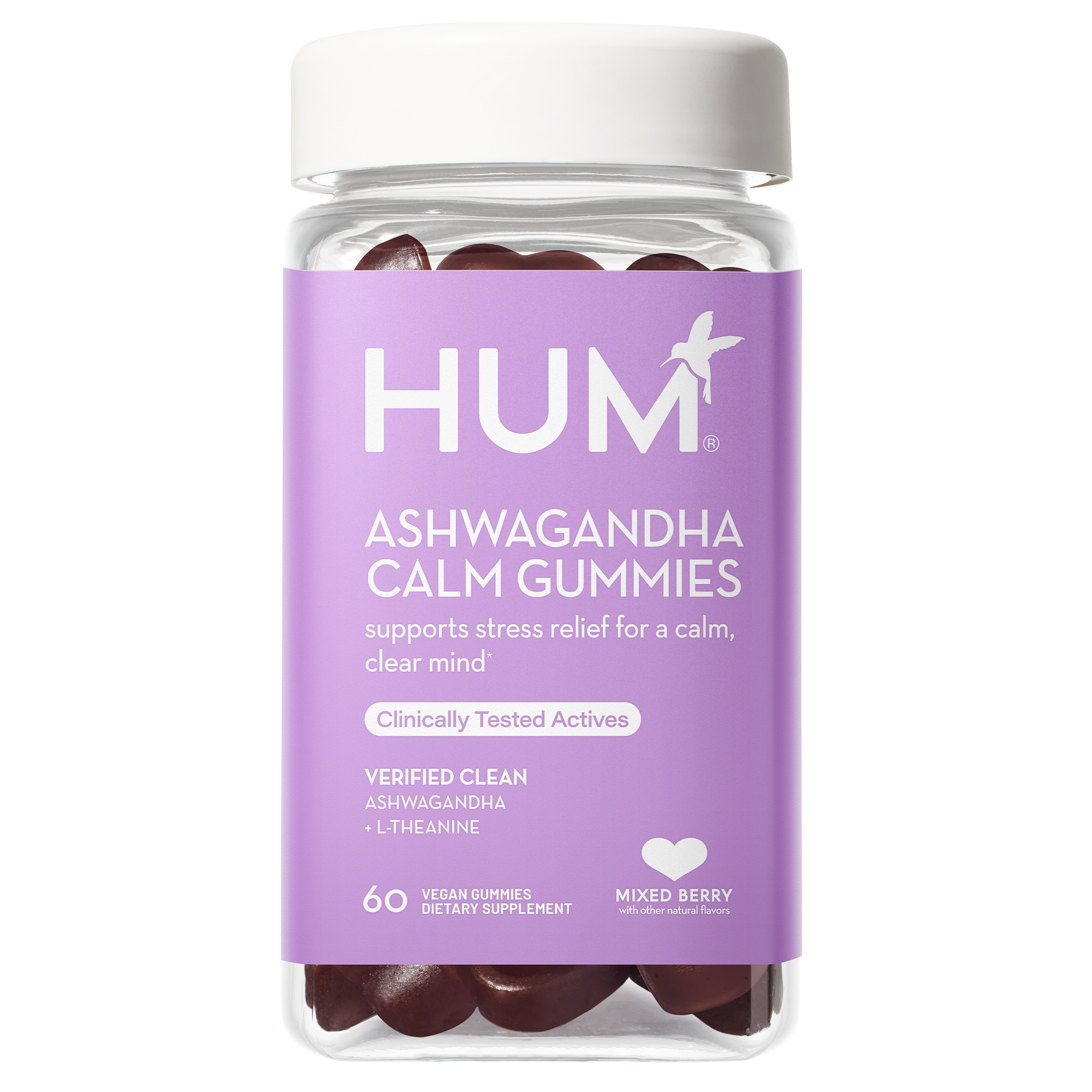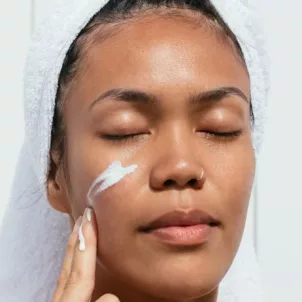Feeling burnt out, over it, or having anxiety about something coming up? You might be wondering, “can stress cause cold sores?” Here’s why that telltale blister may be making itself known on your lip now.
It’s happened again: A cold sore has emerged for all to see. Ugh, why? (No, seriously. Why is it here?) Was it because you’ve been feeling stressed to the max lately? It certainly doesn’t help that having a cold sore makes you even more stressed out. We investigated what could be behind your cold sores.
What is a Cold Sore, Anyway?
A cold sore is caused by the herpes simplex virus (HSV-1), which results in a blister or group of blisters on the lip or around the mouth, as defined by the American Academy of Dermatology (AAD). About half of people ages 14 to 49 carry the HSV-1 virus, and it can be transmitted from person to person through contact with the blister, says the Centers for Disease Control and Prevention (CDC). Think kissing or sharing a straw or utensils. (HSV-1 differs from HSV-2, as HSV-2 is genital herpes.)
Can Stress Cause Cold Sores?
Stress does not cause cold sores—you need to have the virus inside you—but it is considered a trigger.
Here’s what’s going on: After infection, the virus lingers in your body for life—and often you have no symptoms. However, the dormant virus can reactivate. When that happens, you get another cold sore. There are various triggers for a flare, says the AAD, which include fatigue, illness and injury, dental work, sunlight, certain foods, and hormonal changes. And—you guessed it—stress.
Stress wreaks havoc on your immune system, and when the immune system is weaker, it’s more vulnerable to cold sore outbreaks. Preliminary animal research discovered that stress, UV exposure, or fever can trigger the release of a specific protein that has an effect on the immune system, ultimately reactivating the virus that causes cold sores.
What’s interesting about the stress-cold sore connection is that a flare-up may actually be doing you some (subconscious) favors. “Cold sores can serve as a social policeman. Some people get so worked up about being in a social situation or on a date that it can bring on a stress flare-up,” says Matt Traube, MFT, a Santa Barbara, CA-based licensed clinical psychotherapist who specializes in the psychological aspects of skin conditions, including herpes. “Once you get a cold sore—as much as people don’t want one—it can be a relief to have an excuse not to attend the social event or do the thing that’s fear-provoking,” he says.
Of course, this doesn’t necessarily apply to every situation, but it’s important to recognize and think about if it’s actually subconsciously serving an end goal.
The way we interpret stress is sometimes subliminal, says Traube. For instance, you might be excited to go on a trip with your in-laws, but deep-down fear that your partner’s mom still doesn’t approve of you. “That’s enough to create a response,” he says.

How to Prevent or Help Manage Stress-Related Cold Sores
First, treat the cold sore
The treatment for a stress-induced flare-up is the same as any other trigger. When you first notice a cold sore emerging, apply a topical antiviral medication, available over-the-counter, which will fight the herpes virus. Do this as soon as you feel it coming—typically there are several hours of tinging or itching in the area (called prodromal symptoms) before blisters appear.
Topical or oral antiviral medications are also available via prescription through your PCP or dermatologist. If you don’t have a trusted doctor, you can also obtain an Rx for a topical cold sore treatment cream through online medication prescription sites, such as Wisp. Also, consider asking a healthcare professional about applying a medical-grade honey product—one small study on the topical L-Mesitran Soft, found that cold sores healed faster (in 5.8 days compared to 10 days with antiviral therapy) and decreased pain and itching related to their cold sores. The topical treatment, which also has vitamins C and E, has antiviral, antimicrobial, and wound-healing properties.
Long-term, you can also take antivirals daily if you get cold sores frequently. Your best bet is to talk to your doctor about the right plan of action for you.
Give cold sores some TLC
Icing cold sores, taking ibuprofen (Advil) or acetaminophen (Tylenol), using a cold compress on the skin, keeping the area moist with petroleum jelly, and avoiding ouch-inducing foods, such as tomatoes, spicy foods, citrus, and aggressively salty fare, will help keep you comfortable until the sore clears, says the AAD.
Find the destressing strategies you love
You’ll hear a lot about what you should do to keep stress at bay: Practice deep breathing, take a cold plunge (or blast yourself with cold water in the shower), try meditation or mindfulness, go outside for a walk, and get ample sleep. All are worthy ideas, and the best one is the strategy that you enjoy most and are willing to incorporate into your life with regularity. “Find what speaks to you and stick to it,” says Traube. “The key is to create a consistent routine and do it even when you don’t have a cold store. You don’t want to jump into action the moment things feel stressful,” he says.

To help manage symptoms to stress, consider adding HUM’s Calm Sweet Calm vegan gummy for stress support.
Shift your perspective
Unfortunately, there’s a stigma surrounding cold sores. A survey by Abreva, an OTC cold sore treatment, found that 70 percent of people who get cold sores feel self-conscious and 63 percent say they felt unattractive when they had one. Most said they’d rather hide their face. Changing your view of cold sores may help.
You may not be able to stop all flares, so is there a way you can adjust your relationship with cold sores? Of course, you don’t want one, but can you get to a place of acceptance? “This creates an experience that’s much easier to tolerate,” says Traube. Rather than panicking about the cold sore—which creates a cycle of more stress and anxiety—try telling yourself that it’s normal and okay. (Yes, unwanted, but it happens and a lot of it is not in your control.) How would you talk to a friend who was worrying about their cold sore? Use that kind of language with yourself.
Wade through your fears
This is going to require doing some work. If you’re regularly getting flare-ups that are linked to stress, it might be helpful to see a professional. “So much of what I do is help people understand what they’re afraid of and how they’re protecting themselves from it,” says Traube. Together, you can develop healthier ways to do just that. For instance, if it’s social anxiety causing stress, you might practice going to smaller social events and work up to larger gatherings; the gradual exposure will, over time, let your brain know there’s nothing to worry about, he says. Eventually, you may notice that cold sores don’t just pop up at the exact “wrong” times anymore.











